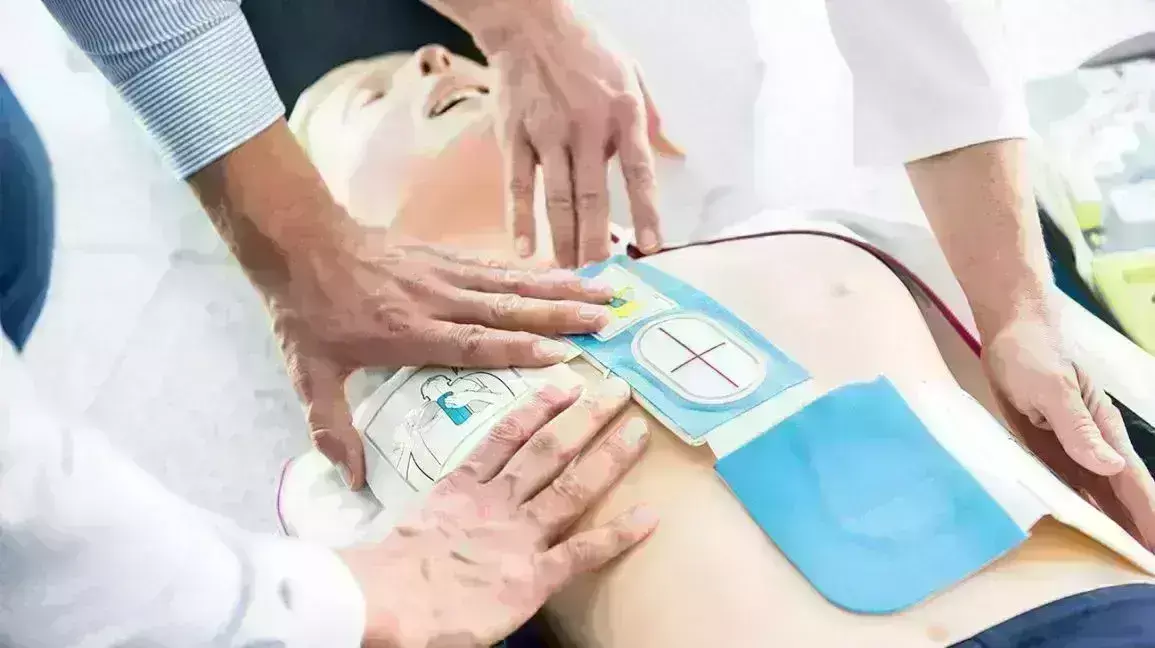- Home
- Medical news & Guidelines
- Anesthesiology
- Cardiology and CTVS
- Critical Care
- Dentistry
- Dermatology
- Diabetes and Endocrinology
- ENT
- Gastroenterology
- Medicine
- Nephrology
- Neurology
- Obstretics-Gynaecology
- Oncology
- Ophthalmology
- Orthopaedics
- Pediatrics-Neonatology
- Psychiatry
- Pulmonology
- Radiology
- Surgery
- Urology
- Laboratory Medicine
- Diet
- Nursing
- Paramedical
- Physiotherapy
- Health news
- Fact Check
- Bone Health Fact Check
- Brain Health Fact Check
- Cancer Related Fact Check
- Child Care Fact Check
- Dental and oral health fact check
- Diabetes and metabolic health fact check
- Diet and Nutrition Fact Check
- Eye and ENT Care Fact Check
- Fitness fact check
- Gut health fact check
- Heart health fact check
- Kidney health fact check
- Medical education fact check
- Men's health fact check
- Respiratory fact check
- Skin and hair care fact check
- Vaccine and Immunization fact check
- Women's health fact check
- AYUSH
- State News
- Andaman and Nicobar Islands
- Andhra Pradesh
- Arunachal Pradesh
- Assam
- Bihar
- Chandigarh
- Chattisgarh
- Dadra and Nagar Haveli
- Daman and Diu
- Delhi
- Goa
- Gujarat
- Haryana
- Himachal Pradesh
- Jammu & Kashmir
- Jharkhand
- Karnataka
- Kerala
- Ladakh
- Lakshadweep
- Madhya Pradesh
- Maharashtra
- Manipur
- Meghalaya
- Mizoram
- Nagaland
- Odisha
- Puducherry
- Punjab
- Rajasthan
- Sikkim
- Tamil Nadu
- Telangana
- Tripura
- Uttar Pradesh
- Uttrakhand
- West Bengal
- Medical Education
- Industry
Patients with out-of-hospital cardiac arrest due to poisoning have higher chances of survival

Patients with out-of-hospital cardiac arrest due to poisoning have higher chances of survival, finds a new study.Therefore in all such patients of Poisoning attributed to out-of-hospital cardiac arrest (P-OHCA) resuscitation efforts should be extended.
The study has been published in the journal Resuscitation
Description and comparison of cohort characteristics and outcome of adult patients with out-of-hospital cardiac arrest (OHCA) attributed to poisoning (P-OHCA) versus patients with OHCA attributed to other medical causes (NP-OHCA).
They included all patients who received cardiopulmonary resuscitation after OHCA between January 2011 and December 2020 from German emergency medical services with good data quality in the German Resuscitation Registry. Exclusion criteria: patients < 18 years of age or OHCA attributed to trauma, drowning, intracranial bleeding or exsanguination.
Results:
Patients with P-OHCA (n = 574) were significantly younger compared to NP-OHCA (n = 40,146) (median age of 43 (35-54) years vs. 73 (62-82) years; p < 0.001). Cardiac arrest in P-OHCA patients was significantly less often witnessed by bystanders (41.8 % vs. 66.2 %, p < 0.001). Asystole was the predominant initial rhythm in P-OHCA patients (73.5% vs. 53.7%, p < 0.001) while ventricular fibrillation (VF) and pulseless electrical activity (PEA) were less common (9.2% vs. 25.1% and 16.2 % vs. 20.5%, p < 0.001). P-OHCA had a higher chance of survival with good neurological outcome at hospital discharge (15.2 vs. 8.8 % p < 0.001) and poisoning was an independent protective prognostic factor in multivariate analysis (OR 2.47, 95%-CI [1.71-3.57]). P-OHCA patients with initial PEA survival with good neurological outcome was comparable to initial VF (34.3 % vs. 37.7%).
Patients in the P-OHCA group had a significantly higher chance of survival with good neurological outcome and PEA as initial rhythm was as favourable as initial VF. Therefore, in P-OHCA patients resuscitation efforts should be extended.
Reference:
Higher chance of survival in patients with out-of-hospital cardiac arrest attributed to poisoning by Christoph Hüser et al. published in the Resuscitation.
https://pubmed.ncbi.nlm.nih.gov/35288163/
Dr. Shravani Dali has completed her BDS from Pravara institute of medical sciences, loni. Following which she extensively worked in the healthcare sector for 2+ years. She has been actively involved in writing blogs in field of health and wellness. Currently she is pursuing her Masters of public health-health administration from Tata institute of social sciences. She can be contacted at editorial@medicaldialogues.in.
Dr Kamal Kant Kohli-MBBS, DTCD- a chest specialist with more than 30 years of practice and a flair for writing clinical articles, Dr Kamal Kant Kohli joined Medical Dialogues as a Chief Editor of Medical News. Besides writing articles, as an editor, he proofreads and verifies all the medical content published on Medical Dialogues including those coming from journals, studies,medical conferences,guidelines etc. Email: drkohli@medicaldialogues.in. Contact no. 011-43720751


